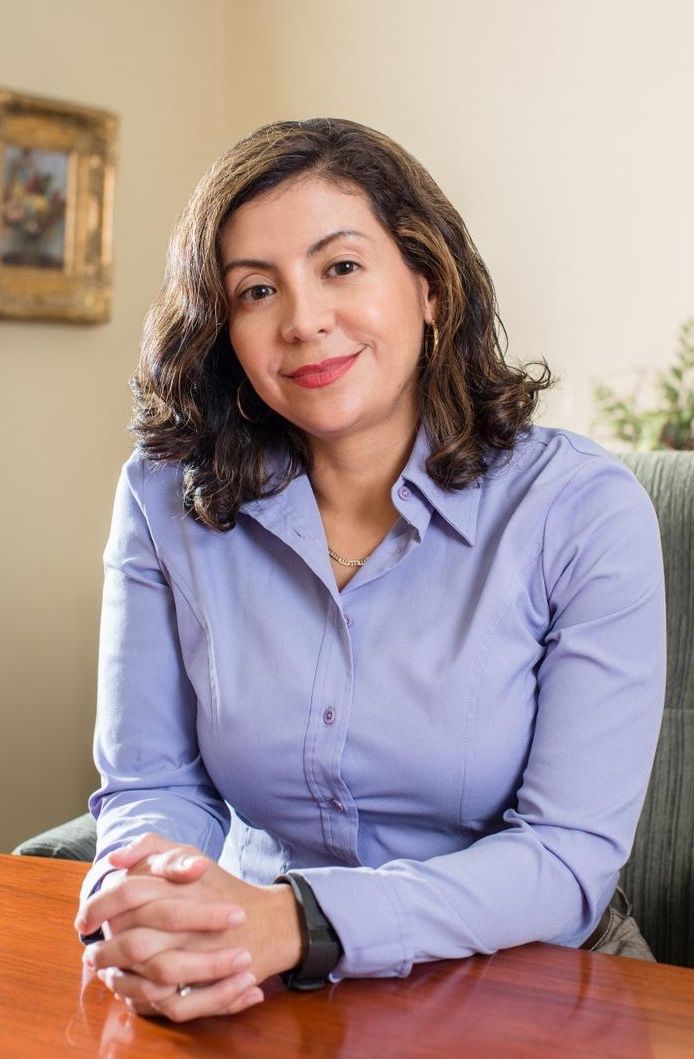The next step in Carol Obando-Derstine’s professional journey from the public sector to the power industry? A master’s degree in Energy Systems Engineering from Lehigh University.
Carol Obando-Derstine knows what it’s like to live in a place where the lights don’t always come on when you flip a switch. Her family immigrated to the United States from Colombia when she was a child and she doesn’t take electricity for granted.
“I have a different perspective because I’m a naturalized citizen and I know what the power grid is like in countries outside of America,” says Obando-Derstine, who last May was named project manager for Interconnection Affairs for PPL Electric Utilities. “It gives me a tremendous appreciation for the grid that we have here in the United States and, in particular, the very reliable, smart grid that PPL runs.”
She started working with PPL in public relations five years ago before moving to the Transmission and Substations Department. Obando-Derstine handles requests from customers to connect to the transmission system and oversees pole relocations and removals. She also coordinates the review process for transmission customers making modifications to their existing service by either installing new equipment or requiring additional power.
“I would describe it as challenging yet incredibly rewarding to be involved in connecting new companies to PPL’s transmission system and to play a role in assisting economic development efforts in our service territory. I cannot describe just how much I enjoy supporting our customers in any way possible,” she says.
To expand and deepen her knowledge of the field, Obando-Derstine enrolled in Lehigh University’s Energy Systems Engineering (ESE) master’s degree program in June.
“It’s helping me to understand the transition that the energy sector is undergoing because of digitalization, decarbonization, and decentralization efforts within the sector,” she says.
Because she works full-time and she and her husband are raising their two children, she chose to take one ESE course in the summer and one in the fall, both remotely because of the pandemic. The courses, “Energy Systems Project Management” and “Energy Generation,” were taught by the program’s director, Rudy Shankar.
“I’ve learned so much from him,” Obando-Derstine says. “He’s patient and approachable, and he’s always willing to take the time to help us understand the concepts.”
That’s especially helpful because Obando-Derstine’s educational background isn’t in engineering. She earned her bachelor’s degree in psychology, with a minor in cultural anthropology, from Rutgers University, as well as a master’s in community psychology and social change from Penn State University.
Prior to working for PPL, Obando-Derstine was regional manager for U.S. Senator Bob Casey, covering the Lehigh Valley and several counties. It was in that work that her interest in energy blossomed into a “full-blown passion,” she says.
That passion has taken on an urgency with rising concerns about climate change.
“Climate change, as I see it, has become a defining issue of our time,” she says. “So how we respond collectively to these complex challenges surrounding climate change will impact generations to come. Today we have a tremendous opportunity to advance a cleaner energy future and rethink how we generate, deliver, and consume energy as a society. I’m committed to being a good steward of the resources we have on the planet.”
To that end, the Energy Systems Engineering program has broadened her understanding of different sources of energy and the future of each.
“It’s that all-of-the-above approach that is necessary to confront this existential threat,” she says. “I can’t think of any other degree that aligns more closely with where I want to take my life.”
—Margie Peterson is a freelance contributor for the P.C. Rossin College of Engineering and Applied Science

